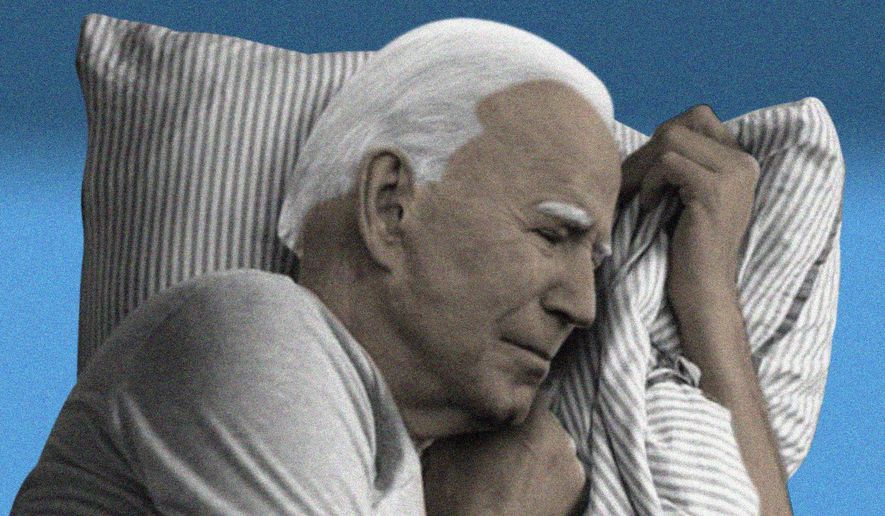OPINION:
Russia’s destructive conquest of neighboring Ukraine is far from complete, portending many more days of heartbreak and death. As the conflict enters its second year, the occasion serves as a reminder of the elementary truism that peace is ensured through strength. Sadly, President Biden has managed to validate its equally essential corollary: Weakness leads to war.
Dictator Vladimir Putin is reportedly amassing Russian troops by the hundreds of thousands along the border with Ukraine in preparation for a fresh offensive to redeem losses suffered in the first futile year of its quest to subdue a defiant adversary. “The responsibility for fueling the Ukrainian conflict, for its escalation, for the number of victims … lies completely with Western elites,” Mr. Putin said in a Tuesday speech defending his actions before the Russian citizenry.
Mr. Putin also announced the suspension of Russia’s participation in the New START nuclear disarmament treaty. In the 2010 pact, the U.S. and Russia agreed to reduce their nuclear warheads to 1,550 and vehicles for launching the weapons to 700. Ominously, the Putin advisory was followed by a nuclear “superweapon” test. U.S. officials believe the missile failed, but they worry that a renewed nuclear arms race might be on the horizon.
Mr. Putin’s pronouncements came on the heels of Monday’s surprise visit to Kyiv by Mr. Biden, who told Ukrainian President Volodymyr Zelenskyy, “Freedom is priceless. It’s worth fighting for, for as long as it takes, and that’s how long we’re going to be with you, Mr. President.” A limitless commitment of time and money is easier to make than fulfill.
Far from priceless, the freedom Mr. Biden seeks on behalf of Ukraine carries a rather hefty price to be paid by American taxpayers. In his brief stopover, the president pledged $500 million for advanced weapons, sending the cumulative U.S. expenditures for Ukraine’s defense north of $100 billion.
Despite his professed expertise in international affairs honed over five decades in national government, Mr. Biden committed one of the most foolish strategic blunders in U.S. history when he surrendered to freedom-loathing forces in Afghanistan.
At the time, the president may not have grasped the consequences of his fateful action, but U.S. adversaries clearly did, including Mr. Putin. The Russian tyrant likely concluded that a pandemic-ravaged and race-riot-torn America coming off a contentious presidential election had been reduced to a paper tiger. Six months later, he invaded Ukraine.
Watching Mr. Biden bow before the Taliban in one instance and shake his fist at the Russians in another, Americans regard his policy zigzags with ambivalence. A Pew Research Center survey days after the president’s August 2021 Afghanistan pullout found a bare-majority 54% agreeing with the president’s move. A recent Pew poll found the proportion of respondents saying U.S. support for Ukraine is either about right or not enough has shrunk from 74% a year ago to 51%.
It is too late for President Biden to pose as a champion of peace through strength. A direct line from his weakness in Afghanistan leads to the war in Ukraine, marking an unhappy anniversary.




Please read our comment policy before commenting.